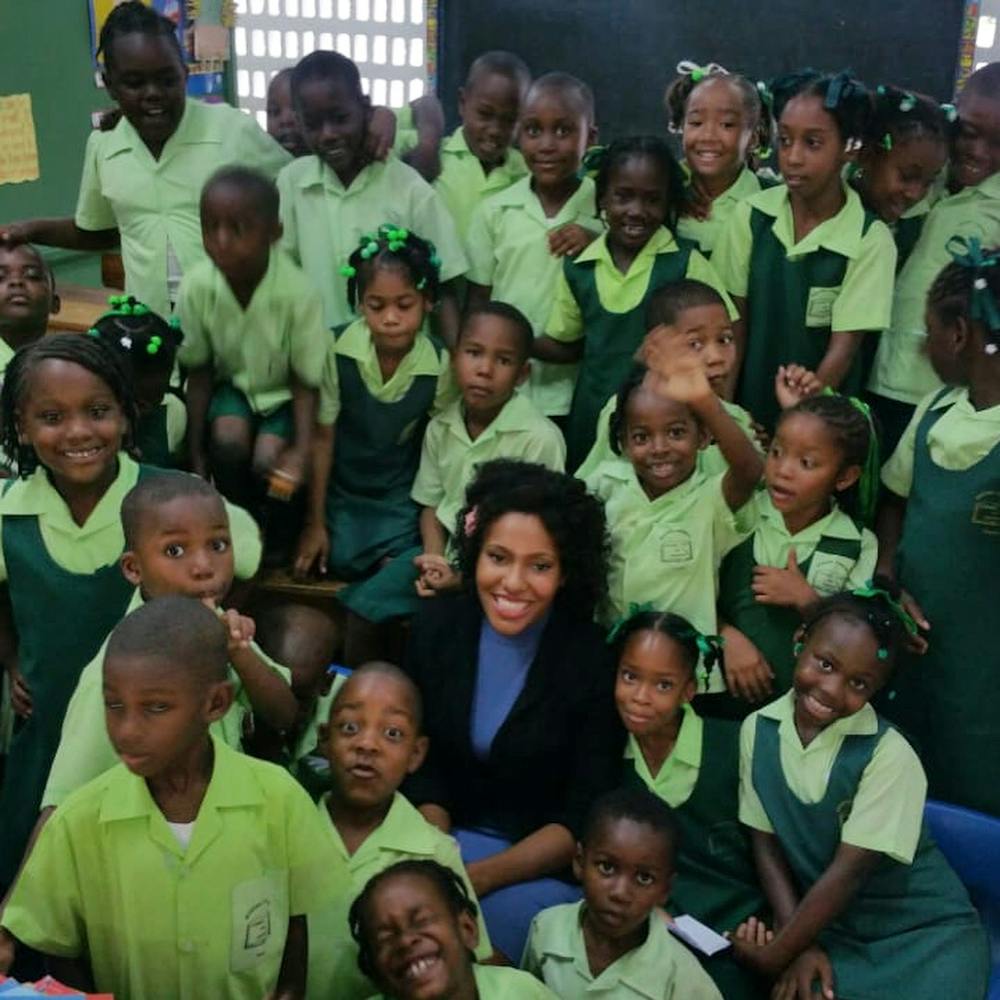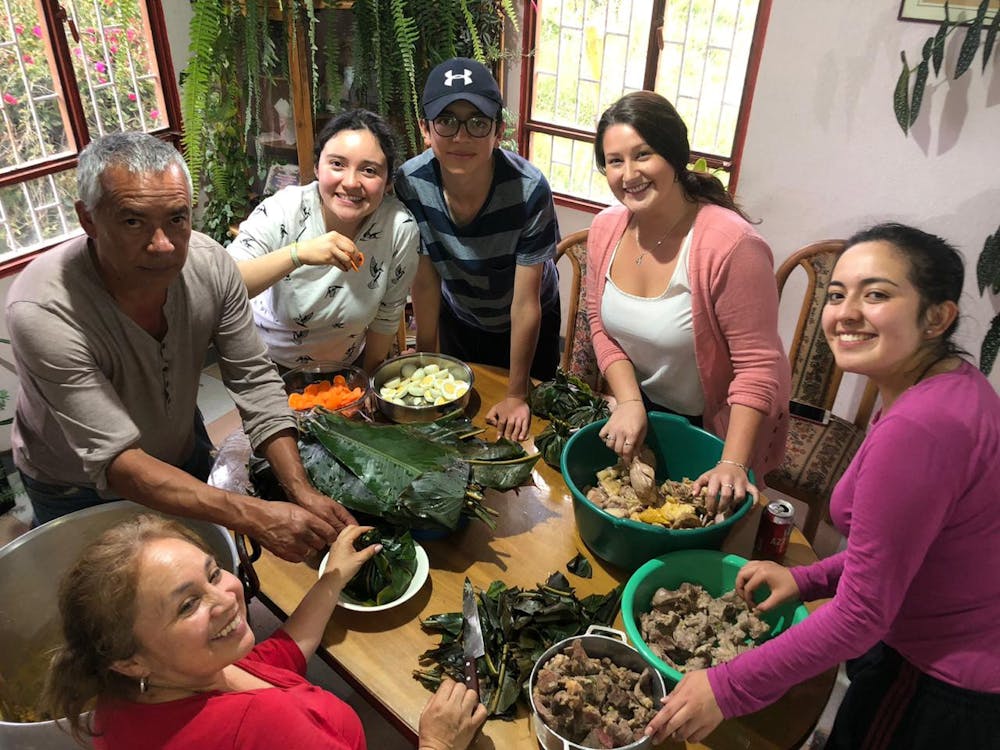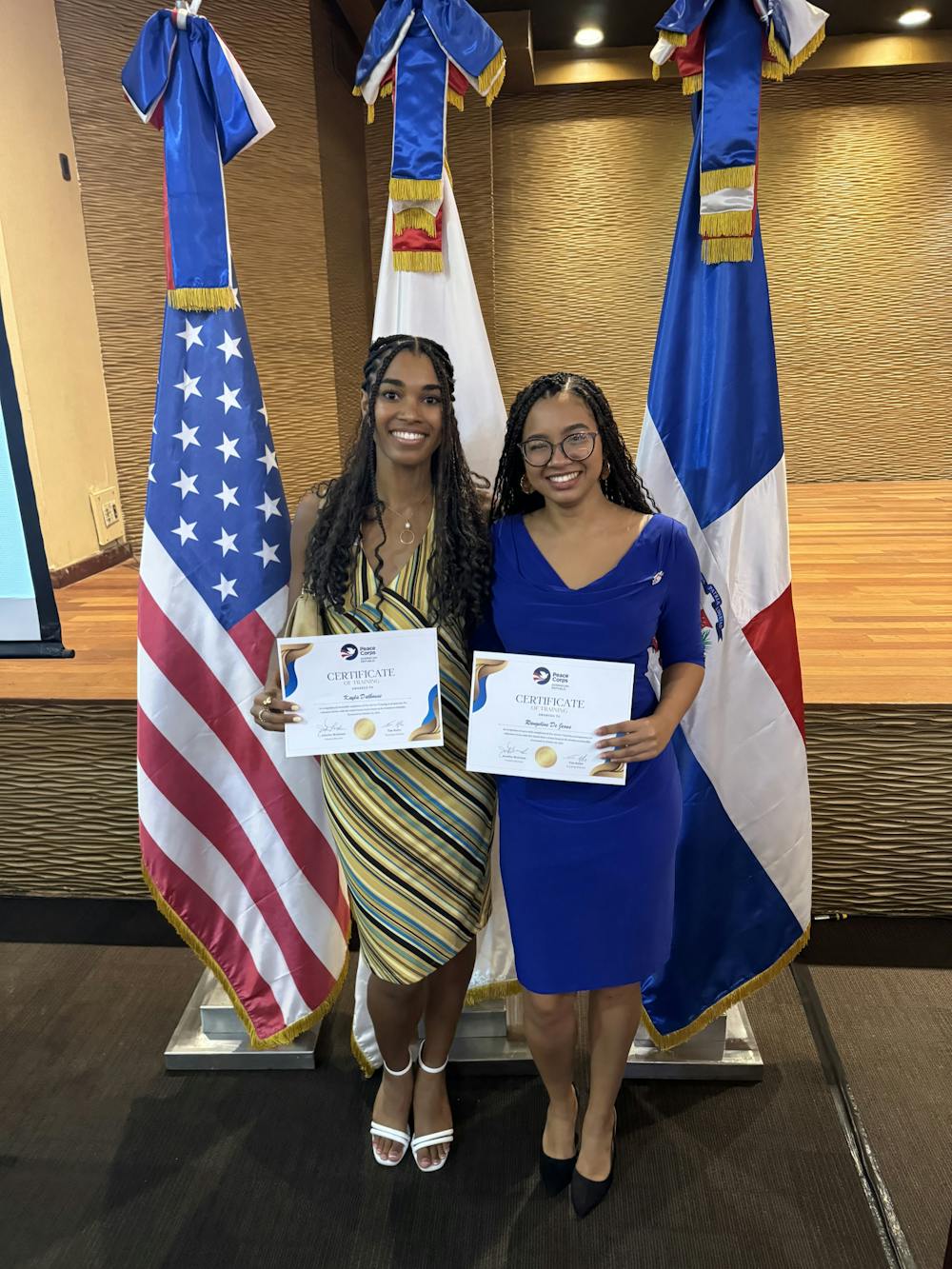Shippensburg University welcomed back several alumni for a virtual workshop titled “Peace Corps: Global Opportunities.” Four SU graduates and a Peace Corps recruiter joined Career Center Executive Director Victoria Kerr to discuss their experiences as volunteers for the Peace Corps.
Kayla Dalhouse ’24 and Rangeline DeJesus ’24 joined the call together. They both serve as youth development volunteers in the Dominican Republic and live together.
Dalhause graduated from Shippensburg University with a bachelor’s degree in sociology and a minor in international development. DeJesus meanwhile majored in international studies and Spanish with minors in political science and women’s and gender studies.
DeJesus described the area where she worked as a “little beach town on the coast” of the Dominican Republic with a large fishing community. That environment gives her and Dalhause the opportunity to practice environmental stewardship by organizing beach cleanups and education.
Among DeJesus’ focuses are teaching girls empowerment, self-confidence and leadership skills. She hopes to start two clubs — Chicas Brilliantes (Brilliant Girls) and Chico Superman (Superman Boys) — to promote responsible and safe decision making, civic engagement and leadership.
“I was really passionate about specifically women’s empowerment,” DeJesus said. “The Dominican Republic is actually known for having (one of) the highest rates of teenage pregnancy in Latin America. Being able to help break that cycle in whatever way and show girls a different path was something that meant a lot to me.”
While DeJesus works with elementary-age children, Dalhause works with grades 9–12. She has an additional focus — employability training. Because she works at a small school, Dalhause also helps support other teachers, especially with teaching English.
Dalhause chose youth development because she feels “very strongly about providing youth with resources, materials and opportunities when they’re young so they can build upon them as adults.”
Evie Betancourt ’17 graduated with a bachelor’s degree in journalism with a minor in international relations. After returning from the Peace Corps, she attended American University where she earned a master’s degree in international development and conflict resolution. During her service, she worked in St. Lucia as an English literacy specialist and currently works with the agency as a legal eligibility specialist.

Yvette "Evie" Betancourt posing her schoolchildren in St. Lucia.
As a teacher in St. Lucia, Betancourt worked on library development. The school she was working at did not have a library when she arrived, but with the use of grants and book donation drives, they were able to develop one.
Betancourt utilized her background in journalism by working with a local news network to produce a weekly program that highlighted the work of her fellow volunteers.
Daniel Geffre, a 2018 graduate of the University of Arizona, studied English and art history before volunteering. During his service from 2022–2024, Geffre taught English to schoolchildren in Benin. He now serves as the Peace Corps Philadelphia recruiter.
During his time in Benin, Geffre lived in a village and commuted to another village where he taught grades six through nine. He taught four classes in English and participated in many secondary projects in public health and nutrition.
Sarah Kistner ’19 majored in international studies before entering the Peace Corps and volunteering in Columbia. She is currently pursuing a doctorate in international education policy at the University of Maryland, where she earned a master’s degree in the same subject in May 2024.
From 2019–2020, Kistner served as a secondary English teacher in Boyaca, Columbia. Her service was cut short by the start of the COVID-19 pandemic, which forced volunteers to return home.

Sarah Kistner with her host family in Boyaca, Columbia.
“I slowly started to realize how impactful education can be,” Kistner said. “I was starting to see how my international studies degree could fit in education. I saw that the Peace Corps had an education sector, and I thought it would be the perfect way to mesh my two interests together.”
DeJesus and Kistner highlighted the importance of connecting with their cohort of Peace Corp colleagues. “I went into the Peace Corps because I knew I wanted to make connections,” Kistner said. She also spoke about how her host family embraced her, emphasizing how welcoming host families can be.
According to Kerr, prospective volunteers often have anxiety that they do not have the skills necessary for the job. Geffre offered a response. “One thing I’ve learned is that anyone can be trained in anything” he said. “Even doctors, they go to medical school. Everyone in every position, you will be trained.”
To Geffre, a good Peace Corps volunteer is someone who wants to be there. “You have ups and downs throughout your entire service,” Geffre said. “I do not shy from that because I want people to know this is going to be difficult. It’s wonderful, but it will be difficult. If you truly love what you’re doing, then you can get through anything here.”
Later in the workshop, Geffre walked students through the Peace Corps application process. Students should give themselves around nine months from when they are wanting to leave. For a senior, that means starting the process in September to be done by April and ready to depart by June. During the process, applicants must fill out health history, be interviewed and receive medical and legal clearance.
As for how to think ahead, the alumni agreed that the Peace Corps Prep program is a great way to prepare and make your application more competitive. Leadership in clubs and study abroad were also suggested as good ways to get equipped with the skills that help the most.
Those who are interested in the Peace Corps Prep program or would like to find out more information should reach out at pcprep@ship.edu.




The Slate welcomes thoughtful discussion on all of our stories, but please keep comments civil and on-topic. Read our full guidelines here.